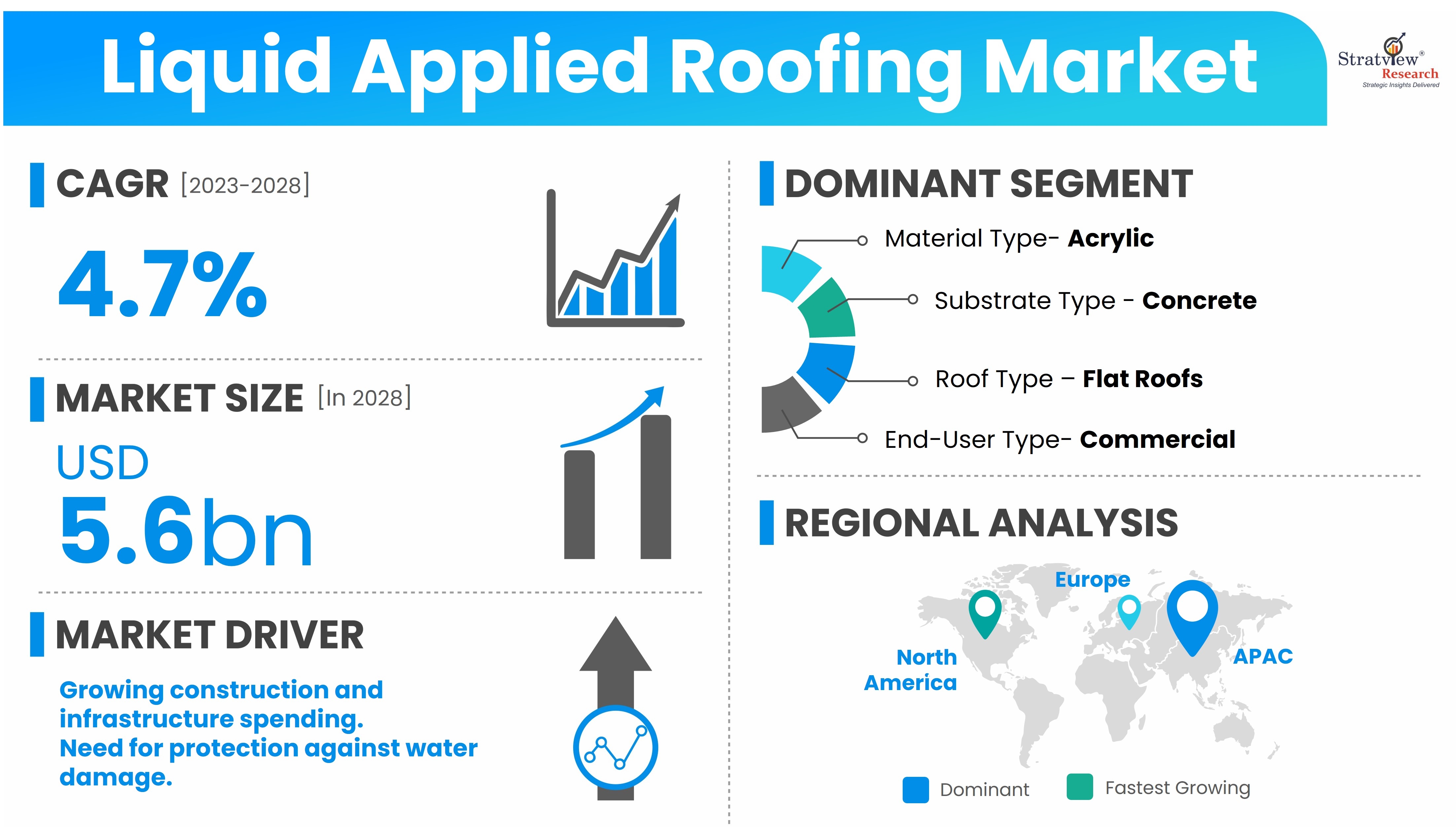Sustainability on the Surface: How Liquid Roofing Supports Green Goals

As sustainability moves from buzzword to necessity, the roofing industry is rethinking materials and methods. Liquid applied roofing systems are emerging as eco-friendly alternatives that support energy efficiency and environmental stewardship.
According to Stratview Research, the liquid applied roofing market is estimated to grow at a healthy CAGR of 4.7% during 2023-2028 to reach USD 5.6 billion in 2028.
Download the sample report here, to uncover in-depth insights.
https://stratviewresearch.com/Request-Sample/789/liquid-applied-roofing-market.html#form
Drivers:
- Cool Roof Incentives: Reflective LAR coatings reduce urban heat island effect and energy use.
- Lower Waste Generation: Applied directly to the surface, LAR eliminates the tear-off waste of re-roofing.
- LEED and BREEAM Credits: LAR systems often contribute to green building certifications.
Challenges:
- VOC Emissions: Some solvent-based LAR systems still emit volatile organic compounds.
- End-of-Life Recycling: Disposal of aged coatings remains under-regulated.
- Lack of Awareness: Many developers overlook LAR’s sustainability benefits.
Opportunities:
- Development of Bio-Based LAR Formulas
- Carbon-Labeling and Life Cycle Analysis
- Government Green Building Incentives
Trends:
- LAR systems with embedded insulation
- Green roof-LAR hybrid solutions
- EPD (Environmental Product Declaration) compliant coatings
Conclusion:
In the age of sustainability, liquid applied roofing is more than a construction tool—it’s a climate solution. Expect growing adoption as green standards tighten and building owners seek long-term value.
- Questions and Answers
- Opinion
- Motivational and Inspiring Story
- Technology
- Live and Let live
- Focus
- Geopolitics
- Military-Arms/Equipment
- Segurança
- Economy
- Beasts of Nations
- Machine Tools-The “Mother Industry”
- Art
- Causes
- Crafts
- Dance
- Drinks
- Film/Movie
- Fitness
- Food
- Jogos
- Gardening
- Health
- Início
- Literature
- Music
- Networking
- Outro
- Party
- Religion
- Shopping
- Sports
- Theater
- Health and Wellness
- News
- Culture

